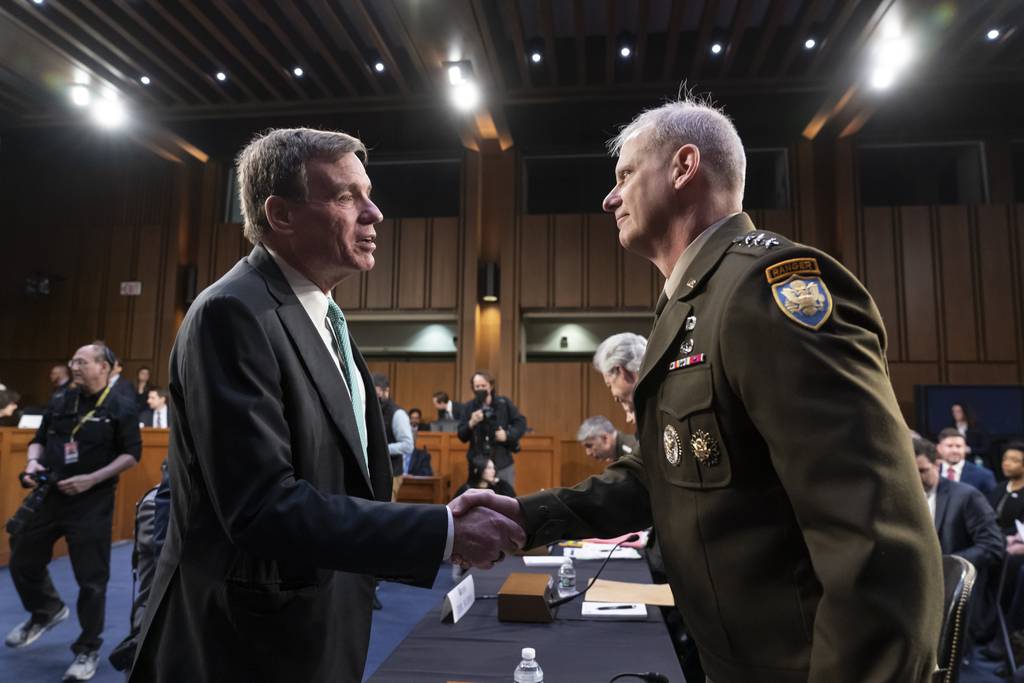WASHINGTON — The head of the Senate Select Committee on Intelligence is hopeful at least some of the reforms proposed by a bipartisan group of lawmakers to improve the U.S. government process for classifying information could make its way into forthcoming defense and intelligence policy bills.
The group, led by Sen. Mark Warner, D-VA, announced two bills on May 10 designed to centralize classification decisions, impose disincentives for overclassification and protect against insider threats.
In a May 11 briefing on Capitol Hill, Warner said that while achieving true reform may be “a bit of a slog,” he’s working to make progress on some of the recommendations during this legislative session.
“We’ve not done a major socialization with the House yet, but we know there are a lot of people who are interested in this issue,” he said. “Whether it got in-total attached or whether we have pieces of this that went into the [National Defense Authorization Act] or the Intelligence Authorization Act, we’re actively working that.”
Secrecy within the defense and intelligence communities is not a new obstacle. Officials have for years warned that overclassification hinders work with allies and industry and makes it harder to communicate with the public. At the same time, several recent events — including alleged misuse of classified documents by the Trump and Biden administrations and the leak of classified Pentagon documents by a member of the Massachusetts Air National Guard — renew concerns by some that access and handling of secret information is not subject to enough oversight.
Warner said those incidents have brought a new urgency to the reform discussion.
“All of that coalesced a bipartisan group of us on the Intelligence Committee to say it’s time to actually put up a piece of legislation, or a couple of pieces of legislation,” he said.
The first bill, the Classification Reform Act, targets the classification process itself, setting accountability and governance measures to ensure that secrecy levels are being applied appropriately. The bill would designate the director of national intelligence as the executive agent for classification and declassification, creating a single authority overseeing the system.
Right to know
The bill would also require that before designating a program as classified, agencies must validate that the national security risk to revealing that information is more compelling than the public’s right to know. Further, it would also establish a fund to upgrade the outdated systems that support declassification. Agencies would allocate a portion of their annual budgets to the fund and those with the highest rates of classified information would be required to contribute more.
To get after insider threat concerns, the bill would set minimum standards for what information can leave government buildings. It would also require most documents to be stripped of classification protections after 25 years.
The second bill, the Sensible Declassification Act, focuses on streamlining the declassification process, improving training programs to ensure “sensible classification” and modernizing the system that manages these issues.
It would also require federal agencies to access the need for “number and types of security clearances.”
Warner said he expects several of the provisions to be unpopular — particularly those focused on weighing security risks against the public interest, charging fees to agencies that overclassify and setting limits on how long certain documents can remain secret.
“That’s going to stir up some controversy — we’re aware,” he said. “Any administration would probably push back on some of this just because they don’t want Congress messing with this.”
Courtney Albon is C4ISRNET’s space and emerging technology reporter. She has covered the U.S. military since 2012, with a focus on the Air Force and Space Force. She has reported on some of the Defense Department’s most significant acquisition, budget and policy challenges.








